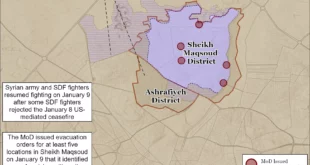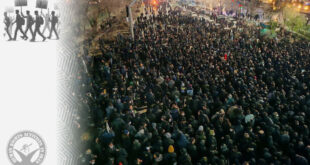Every day lost in the implementation of Mali’s peace agreement is a day gained for extremist and terrorist groups that have bet heavily on the failure of the process, the UN peacekeeping chief said here Tuesday.
Herve Ladsous, the UN under-secretary-general for peacekeeping operations, stressed that the Malian government and the armed groups who signed the deal must establish a timeline to resolve all pending issues.
When briefing the UN Security Council on the current situation in Mali, Ladsous reported significant progress in recent weeks toward implementing the Agreement on Peace and Reconciliation, including steps toward establishing interim administrative arrangements in north Mali and the creation of two new regions — Taoudenni and Menaka.
This came on the heels of a Jan. 18 meeting in Algiers, Algeria, of the Agreement Monitoring Committee, and a meeting convened by President Ibrahim Boubacar Keita on Feb. 27 in Bamako, Mali, where the parties to the peace agreement had set an implementation timetable for March and April.
The senior UN official said other positive developments, including that on March 31, the Malian National Assembly adopted the Law amending the code of local authorities which was followed by the adoption of a decree on the modalities of implementation of the interim authorities in local authorities.
“This is a decisive step that should be welcomed,” he said. “It is now up to the parties to implement this law in the shortest possible time.”
Ladsous also drew the 15-nation UN council’s attention to the creation of national commissions on disarmament, demobilization and reintegration, as well as the construction of cantonment sites.
In light of the security situation in the north, he warned “progress on defence and security issues is too slow,” urging the Malian government and signatory armed groups to move forward on the Operational Coordination Mechanism that would be responsible for establishing mixed patrols and protecting cantonment sites.
Ladsous warned that delays in implementation would have an impact on intercommunal conflicts, particularly in the Gao and Mopti regions, with alarming consequences for civilians.
Check Also
Iran Is Cut Off From Internet as Protests Calling for Regime Change Intensify
As protests swelled around the country, Iran’s internet was shut down, and the heads of …
 Eurasia Press & News
Eurasia Press & News


